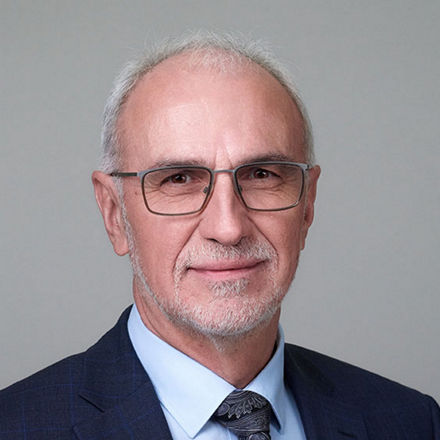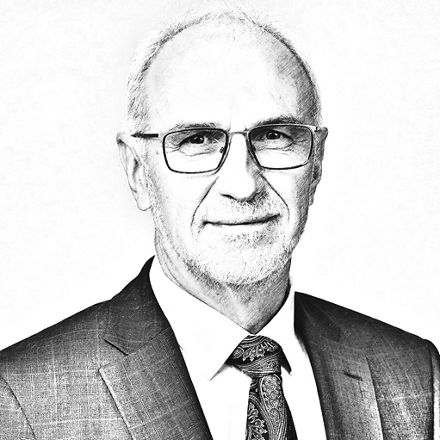Act only according to that maxim whereby you can at the same time will that it should become a universal law.” Immanuel Kant formulated the categorical imperative back in 1785. Almost 240 years later, his injunction has lost none of its urgency. Today as back then, the same principle applies: We must stand up for the values we hold in our hearts. In a democracy, all of us are called upon to be active—especially now, during a time when some people want to bring into question values that used to be regarded as securely established.
Science and research in particular have a responsibility. Our German history has taught us only too well about the cruel excesses that can result when researchers leave the democratic base and let themselves be harnessed before the cart of dictatorial regimes. Today every scientist can clearly see the immense benefits of open international communication and cooperation. That in itself keeps them from toying with the idea of national isolation.
Nonetheless, in many European countries right-wing populists are gaining more and more public approval. In six of the 27 EU countries, they are already participating in the national government. In Italy, Hungary, and Croatia they even provide the head of government. In most cases their political program is simple and by no means well-intentioned, but to many people it nonetheless seems attractive. People who think differently and look different are vilified, and the imminent collapse of the value system and the culture is invoked. Seemingly simple solutions are proposed to eliminate global problems. The populists seek salvation through strict nationalism and profound hostility against everything they presume to be foreign. They claim that the solution is either rigorous isolation or—something that is verbally more discreet but therefore even more insidious—the “remigration” of millions of people.
We must oppose this! The freedom to think and be able to say what you think—this freedom makes all the difference. That also applies to research. The categorical imperative is the guiding principle that prevents freedom from turning into arbitrariness. That’s because a definition of freedom that is limited to the simple-minded attitude “People have every right to say that!” would pave the way for despotism.
Freedom thrives in a society based on responsibility. Freedom makes it possible to be actively involved and to do research on behalf of our country and our well-being. Innovation requires open borders and open hearts!
What happens when freedom and responsibility are lost in equal measure is demonstrated by the darkest capital of our history. The National Socialists’ seizure of power in the 1930s was followed by the “cleansing” of the science system. Dissidents were systematically deprived of their freedom. This precipitated the biggest exodus of intellectuals in recent history. The regime forced the physicist Albert Einstein and the author Thomas Mann into exile, along with thousands of other leading thinkers. The annexation of Austria was followed by the expulsion of pioneers such as the mathematician and philosopher Kurt Gödel and the founder of psychoanalysis, Sigmund Freud. This caused a massive and long-term weakening of science in Germany. What remained was a forcibly standardized “German science” that was free of a sense of responsibility and lent itself to cruel and senseless research projects. Ideology replaced the striving to gain genuine knowledge and thus perverted the basic concept of science.

»Each one of us will soon be able to help decide whether Europe will continue to be a magnet for scientists from all over the world.«
Harald Schwager Deputy Chairman of the Executive Board of Evonik
43 nations do research in one organization
Today science is very internationally oriented, and the discussion of responsibility and the limits of science is conducted at the global level. Here’s one example: More than 1,000 scientists from 40 countries cooperated in the process of decoding the human genome. A look at Evonik affirms this internationality. People from 43 nations work together in our research organization to develop sustainable solutions that make life a little bit better, day by day.
Openness and a readiness to cooperate are fundamental principles that make it possible to do outstanding science. This is shown by the successes achieved by European integration. Europe, which accounts for almost 25 percent of worldwide knowledge production—even though it holds just under six percent of the world’s population—is a strong engine of progress. The essential elements of this status are unobstructed communication with the leading thinkers of our time and an uninterrupted appeal for talented young people.
Each one of us will soon be able to help decide whether Europe will continue to be a magnet for scientists from all over the world. At the beginning of June about 350 million Europeans will be called on to elect the tenth European Parliament. It’s in our hands. Let’s use our vote, so that the global challenges that confront all of us are addressed.
Democracy needs active democrats
However, by voting an individual naturally does not give up his or her own voice. You can’t delegate the responsibility to defend your own values and social cohesion. Democracy needs active democrats. Where would the American civil rights movement be without Rosa Parks? In 1955, when this African-American woman was told to give up her seat to a white man, she refused. Her “no” became the banner of the civil rights movement in the USA. In her novels Herta Müller, the recipient of the Nobel Prize for literature, enables readers to experience what life was like under the Romanian dictator Ceaușescu. In her works she examines the role of the individual inside the system, and through her precise language she reminds us to think critically and take on responsibility.
These examples show that every individual can and must prove that he or she has a backbone. We must never accept discrimination and emotional brutalization, the downplaying of hate-filled rhetoric, and the categorization of people into valuable and less valuable individuals.
The American historian Peter Hayes, who researched the history of Evonik’s predecessor company Degussa during the era of National Socialism, vividly summarized his findings: When freedom and human rights come under threat, we should not settle for the status quo by asking “What other choice do I have?” Instead, we should ask “What do I basically forbid myself to do?” This is how we become capable of action and can oppose populists and charlatans.
That’s because true tolerance can’t exist without taking a stand. This requires having one’s own point of view. The readiness to say no. The philosopher Karl Popper put it this way: “We should claim, in the name of tolerance, the right not to tolerate the intolerant. We should claim that any movement preaching intolerance places itself outside the law.”

